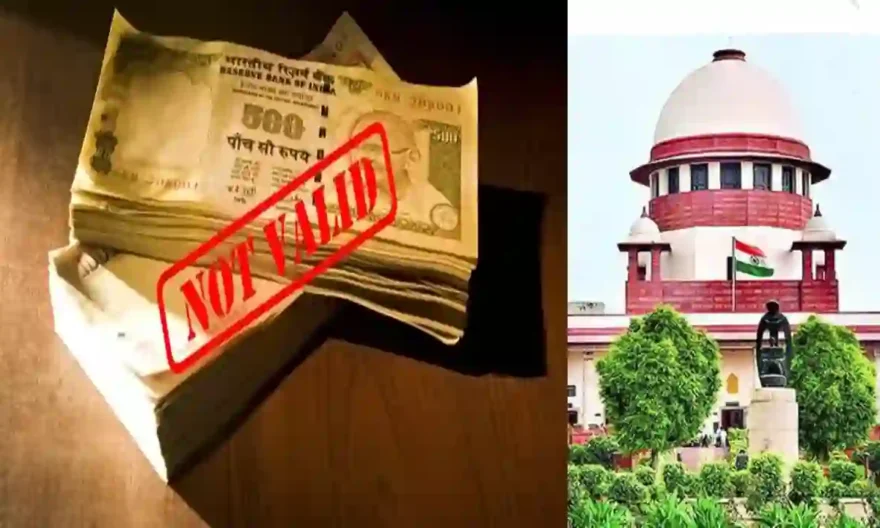
After a days long heated arguments before constitution bench The Supreme Court Ask Union Government of India and the Reserve Bank to Produce all relevant records. Apex court on Wednesday reserved judgment on a batch of petitions challenging the decision taken by the Union Government India sto demonetise the currency notes of Rs. 500 and Rs.1000 denominations on November 8 2016.
A Constitution Bench comprising Justices S Abdul Nazeer, BR Gavai, AS Bopanna, V Ramasubramanian and BV Nagarathna heard arguments in a batch of 58 petitions.
Attorney General for India R Venkataramani said that the documents will be produce in a sealed cover.
During the hearing, the bench had observed that it will not sit with folded hands just because it was an economic policy decision and stated that it can examine the manner in which the decision was taken.
The bench had initially expressed the view that the issue was “academic”, considering the fact that six years have gone by since the decision and wondered if it can undo the actions. However, on October 12, the bench agreed to hear the matter on merits, after the persuasive arguments made by Senior Advocate P Chidambaram. The bench required the Union Government and the Reserve Bank of India to produce before it the relevant documents and files relating to the decision.
The Petitioner’s Counsel Senior Advocate P Chidambaram mentioned that, ‘Although the effects of the decision cannot be undone, but the Court should lay down the law for the future, so that “similar misadventures” are not repeated by the future governments. Senior Advocate Shyam Divan, Advocate Prashant Bhushan etc also made arguments for some petitioners. Among the batch were certain petitions filed by persons seeking extension of the deadline for exchanging the notes.
Attorney General for India R Venkataramani appeared for the Union Government to defend the decision. AG submitted that the decision was taken to curb the evils of fake currency, black money and terror funding. He argued that the scope of judicial review in economic policy decisions is extremely narrow. Even if it is assumed the demonetisation has not succeeded in producing the intended results, that cannot be a reason to invalidate the decision judicially, as it has been taken in good faith after following due process.




